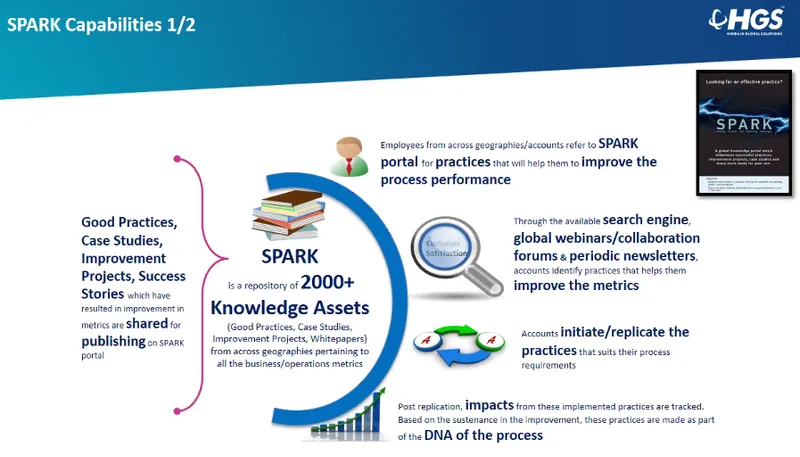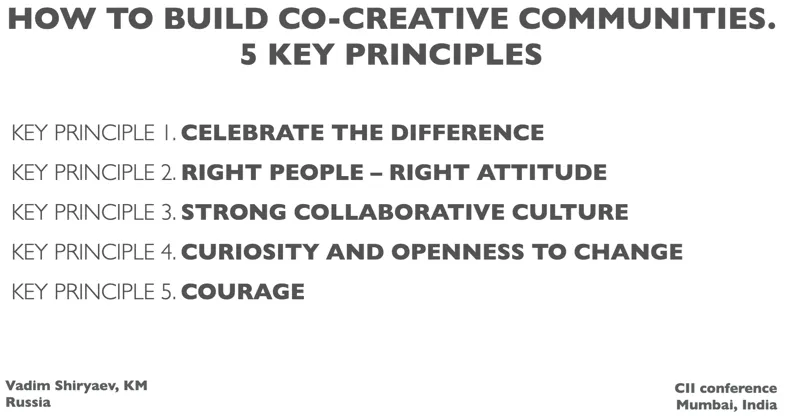Platforms and principles: how to benefit from knowledge management and virtual collaboration
Six speakers at the Bangalore K-Community meetup share insights on organisational knowledge platforms and global collaboration.
The Bangalore K-Community is a group of professionals in the knowledge management (KM) space who meet regularly to discuss case studies, advances, and trends in the field. See my takeaways from the earlier meetups on KM at Unisys and Work From Home (WFH).
The recent meetup on Case Studies and Global Insights featured the KM initiative at HGS, insights on failure storytelling, and a presentation on global virtual collaboration.
The virtual event was hosted by Dr Molly Chaudhuri, Director at Manel Srinivas Nayak Institute of Management. As the moderator, here are my take clusters of takeaways from the wide-ranging and informative discussions.
See also 15-part article series as the media partner for CII’s Global Knowledge Summit: Knowledge Leadership, KM in the Age of AI, Gamification, Storytelling, Knowledge Sharing in the COVID-19 Era, and Eye on AI.
YourStory moderated the summit panel on Knowledge Excellence: Winners of the Global MIKE Awards, and published profiles of the Most Innovative Knowledge Enterprise (MIKE) award winners: EY, Tata Steel, Cognizant Technology Solutions, Afcons Infrastructure, Petroleum Development Oman, BINUS University (Indonesia), and Mobarakeh Steel Company (Iran).

Case study: KM at
A case study of KM at HGS was presented by Sanjay Sastri, Associate Vice President; and Sandhya Nagaraj, Senior Manager, HGS. Part of the diversified Hinduja Group, HGS is a global leader in the BPO space, with centres across the US, Canada, UK, India, Jamaica, UAE, and the Philippines.
In 2010, it launched the KM initiative, and now consists of Knowledge Champions/ SPOCS (single-points of contact) across multiple locations, a knowledge-sharing portal called SPARK (Sharing Practices and Replicating Knowledge), knowledge asset repositories, and community forums (see the full case study here).
The KM initiative has led to positive improvements in productivity, revenues, CSAT (customer satisfaction), Average Handling Time (AHT), and employee engagement. Future steps include the integration of AI, speech analytics, chatbots, automation, and self-help engines.
The company has a range of awards, appreciation and events for KM achievements. “We have rewards and recognition (R&D) for publications, replications, best SPARK SPOC and top contributors,” Sandhya explained.
In the pre-COVID world, HGS used to have an R&R event where account-specific leadership teams presented the awards and certificates to the winners. “From the last one year, we have designed e-certificates that would reach the submitters and contributors in real-time,” Sandhya said.
Once the publication and replication is approved and goes live, the submitter immediately gets an e-certificate expressing thanks for the contribution. “The submitter will also have the option to download e-certificates from portal, or under their individual dashboards,” Sandhya added.
There are plans to give away gift vouchers to the winners. “In the next fiscal, there will be a points system that would be integrated with HGS Shoppee so employees can accumulate points and purchase anything online,” she said.

Image credit: HGS
HGS hosts webinars to share best practices on a monthly basis. “People across geographies attend and share their success stories and best practices. This platform is a big hit,” Sandhya proudly says.
The SPARK programme is being included as part of the induction. “Whoever joins the company is onboarded with this programme and can start contributing from Day One,” she explains.
There are monthly governance calls with all knowledge champions; there are also connects on a need basis. “We have communications that are monthly and quarterly. We also have an R&R event that happens every six months,” Sandhya adds.
HGS now has a diverse multi-generational workforce, with baby boomers, generation X, millennials, and generation Z. “HGS, being a BPO, has more than 80 percent employees who are millennials or generation Z,” Sandhya explains. This has implications for knowledge sharing behaviours and tool preferences.
Baby boomers and generation X employees prefer interactions or e-mails from the process owners. Whereas millennials and generation Z employees prefer immediate responses via apps or social media, Sandhya observed.
“Presence of millennials and generation Z in the workforce pushes the older generation of employees, who are in leadership roles, to innovate and come up with KM solutions leveraging apps, social media, AI, machine learning, and other emerging technologies. This is one of the big advantages of having a multi-generational workforce,” Sandhya explains.
Looking back, Sandhya charts some of the progress of the HGS KM journey. “We have had around 2,000 publications and 4,000 replications, including nearly 5,000 high-impact replications. We have hosted more than 200 webinars, and have seen nearly 15,000 people participating across geographies,” she says.
Failure storytelling
Much of KM focuses on sharing best practices and stories about successes. But it is also important to learn from failures at the level of individuals, teams, products, leaders and even companies.
Insights into failure storytelling were shared by Robin Banerjee, MD of Caprihans India. He is also the author of Who Blunders and How: The Dumb Side of the Corporate World (see my book review and author interview).
He shared stories of companies that lost track of customer focus, or engaged in malpractices. For example, Kingfisher and Indigo airlines started at around the same time, but one went bankrupt and the other became a market leader. Yes Bank and Kotak Mahindra Bank also launched at around the same time, but Yes Bank had to be taken over by RBI in 2020 to prevent its collapse.

Robin Banerjee
To avoid such disasters, companies must develop and harness knowledge about debt, risk, ethics, acquisitions, and manpower. Robin evocatively grouped these domains under the acronym, DREAM.
“Unfortunately, most bosses hate to hear bad news,” Robin lamented. But only a culture of sharing such knowledge and acting on it can stave off crises. Some countries have provisions for corporate whistleblowers in this regard, or a corporate ombudsman.
Global Virtual Collaboration
The team behind the annual KM Russia conference and G-LINK (Global Leaders for Innovation and Next-generation Knowledge) presented a core set of principles for global virtual collaboration (GVC).
Though remote work practices have been around for a while, the need for effective GVC has increased even more in the pandemic era with WFH (work from home). Organisations now need to master the art and science of collaboration with entirely new partners as well.
Five principles of GVC were presented by Vadim Shiryaev, the current head of the KM Global Network, representing KM associations from 12 countries. “With a population scattered across 11 time zones, Russians have to be collaborative. That is the only proper way of doing business,” he explained.
Events like KM Russia draw participants from other countries and cultures as well, thus calling for clear agreement on the philosophy, principles, and practice of GVC. Vadim listed these principles as: celebration of difference; right people; collaborative culture; curiosity; and courage.
Diversity of nationality, age, gender, culture, and discipline helps generate a spectrum of ideas. The right people should be chosen, with a spirit of trust and reciprocity, explained Sergey Voynov, Leadership Council Member, Vilavi.

Image credit: GLINK
The role of facilitator, effective platforms for messaging and content collaboration, and mentorship are success factors for GVC, according to Olga Smirnova, Community Leader, G-LINK. “Each rule has its curators. Each participant has a cultural mentor,” she added.
Gamification elements like competitions and appreciation pins help as well. Fun elements to include are games, choice of colours, costumes, quizzes, music, and even online gymnastics, Olga joked.
The G-LINK team has planned several GVC events through 2021, in April, June, September, and December. “Global virtual collaboration is a new language. Let’s learn it together,” Vadim signed off.
CII Knowledge Summit
The meetup ended with a discussion on emerging themes for CII’s upcoming Global Virtual Knowledge Summit (earlier referred to as KM India Summit or India Knowledge Summit). The 2020 edition was held online due to the coronavirus pandemic, and so will the 2021 edition on April 8-9.
The theme for 2021 is ‘Transforming Knowledge Management for Hybrid Learning and Hybrid Workplaces.’ Proposed topics, under finalisation, include technology for corporate learning, CKO roles, skilling, new frontiers in education, business communication, and design thinking.
Future sessions of the Bangalore K-Community will feature more case studies of KM, workplace communication, and emerging technologies.
Edited by Kanishk Singh









